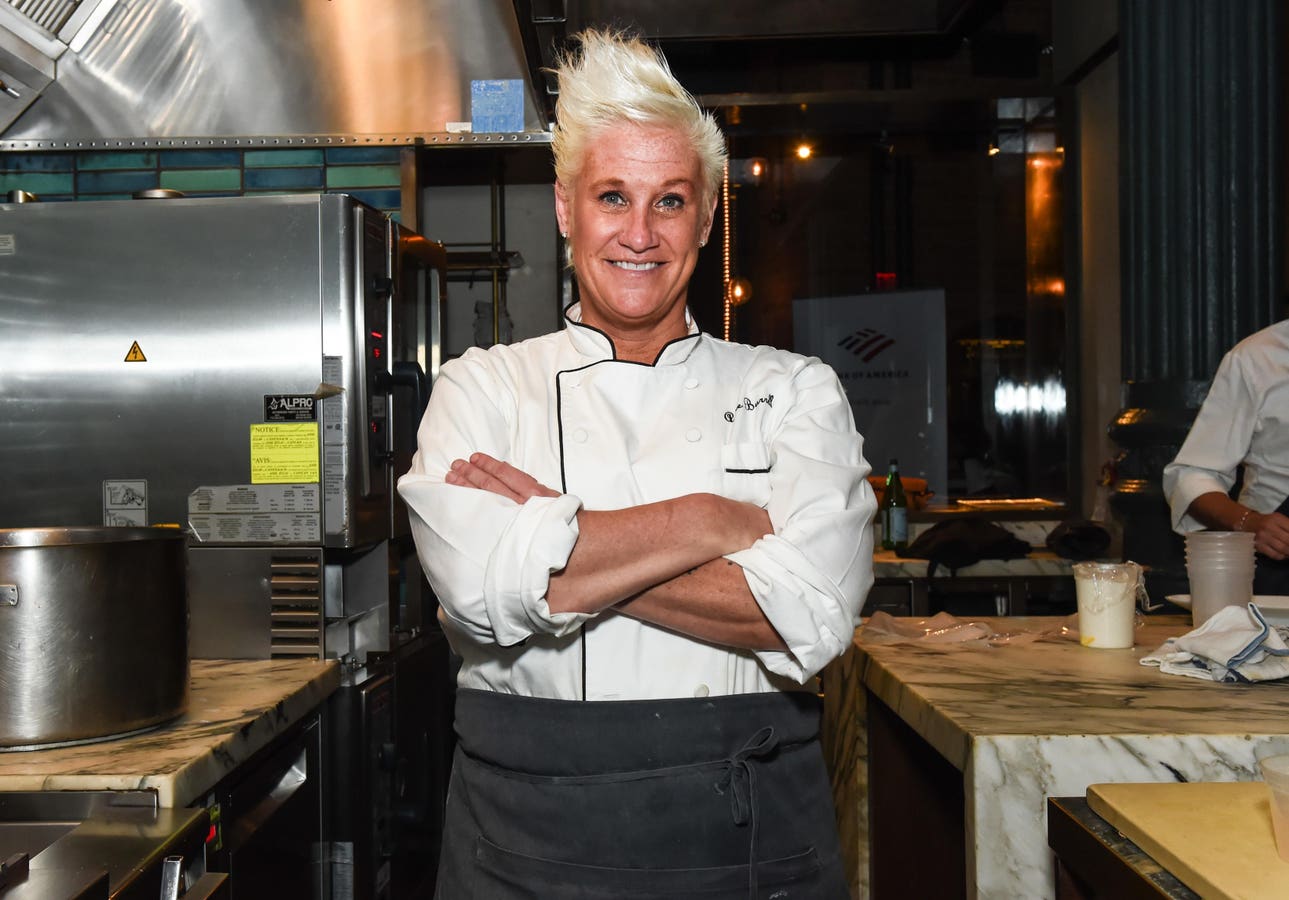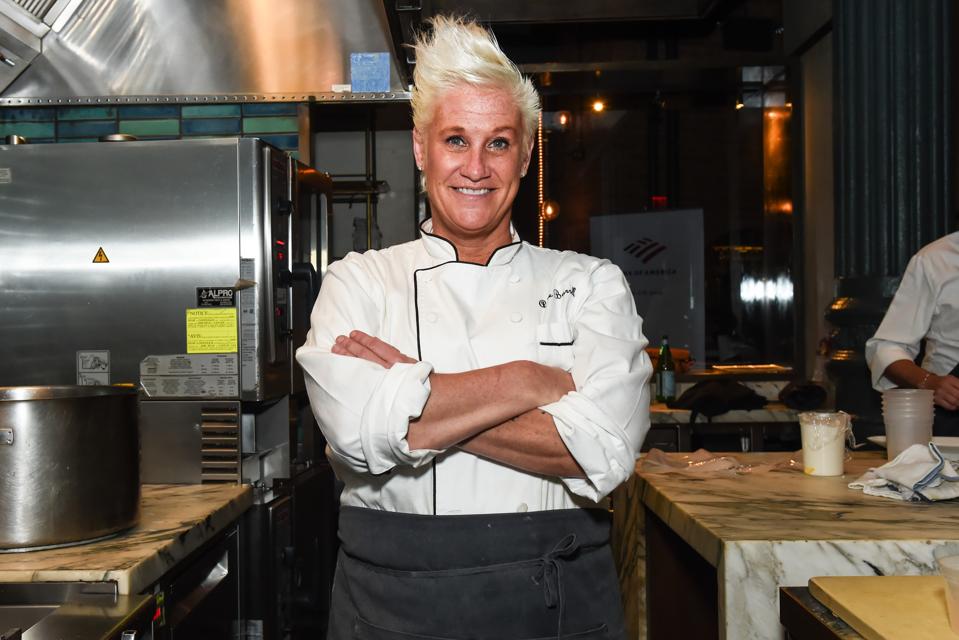From kitchen flops to life lessons, Anne Burrell showed us in Worst Cooks In America why failure is … More
Food TV has long profited from humiliation. Burrell built something else—a space where failure could be funny, but getting better was the point. When Worst Cooks in America returns to Food Network on July 28, it won’t feel like just another stunt season. A month will have passed since Anne Burrell—chef, host, and the show’s driving force—died unexpectedly at age 55. She had filmed this upcoming season, Talented and Terrible, alongside new mentor Gabe Bertaccini before her death. It now serves, unofficially, as her farewell.
The premise is familiar: a group of self-proclaimed disasters try to survive culinary boot camp. This time, they’re professional performers—people who are polished on stage but lost in the kitchen. It’s built for irony, but the real tension sits somewhere else.
This is the last season with Burrell. And the last one that carries the very specific tone she created: not perfectionism, not cruelty, but encouragement.
What the Show Represents
For many adults, cooking can come with a quiet sense of disappointment, especially when it doesn’t match what we imagine it should be. Not just about how much we rely on takeout or how often we burn rice, but a deeper anxiety: that somehow, everyone else learned how to feed themselves the “right” way—and we missed the memo. Food television, even when it claims to be approachable, often reinforces that divide. Too glossy, too fast, too perfect.
But Worst Cooks in America, especially under Anne Burrell’s lead, offered something else. The show wasn’t just funny—it was freeing. Burrell didn’t treat incompetence as failure; she treated it as a starting point. In a media landscape that often drags the amateur for laughs, she reminded us that learning to cook is still allowed to be clumsy. That getting better is still allowed to take time.
The show never mocked people for what they didn’t know. It offered them space to try again and a coach who actually believed they could pull it off.
That ethos—of meeting people where they are and helping them improve—isn’t just good television. It reflects what psychologist Carol Dweck defines as a growth mindset: the belief that a person’s abilities can be developed through their own effort, feedback, and persistence. As the Association for Psychological Science explains, this kind of mindset reframes failure as a necessary part of learning, not a sign of weakness.
Dweck’s research has shown that people with a growth mindset not only perform better under pressure but are more likely to view mistakes as part of the process—an idea reinforced by the Proceedings of the National Academy of Sciences, which links these beliefs to long-term performance and resilience. Worst Cooks in America made that theory tangible. Under Anne Burrell, it modeled a kind of mistake-embracing culture that helped viewers—many of whom had written themselves off in the kitchen—see improvement as possible, and even joyful.
The Advice That Lingers
A month after her passing, that belief still resonates. In one widely shared Reddit thread, fans reflected on the phrases that had etched themselves into memory, not because they were trendy, but because they were true.
“Brown food tastes good.”
“Slices, sticks, dices.”
“BTB, RTS.” (Bring to boil, reduce to simmer.)
Sure, these punchy catchphrases were good for a laugh. For these fans of Burrell and of the show, they are little anchors. A way for someone who’d never held a knife correctly to hear Burrell’s voice in their head and adjust their grip. A way for someone overwhelmed in their own kitchen to remember: brown food is good food. You’re not messing it up. You’re doing it right.
“She lives on,” one commenter wrote, describing how they still say her phrases out loud while cooking. Another shared, “I think of Anne Burrell every time I cut something with a knife.”
Burrell’s legacy the impact of Worst Cooks in America in isn’t just about visibility or representation. It’s about emotional permission. She gave people who felt behind—people who had been dismissed in other kitchens, or dismissed themselves—a reason to believe they could still learn how to cook. And, maybe, how to be seen doing it.




